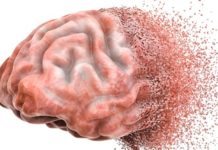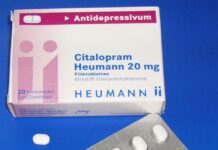Antidepressants Not Superior to Psychotherapy for Severe Depression
On Wednesday, JAMA Psychiatry released a meta-analysis comparing the results of cognitive-behavioral therapy and antidepressant medication in severely depressed populations. Currently, many practice guidelines suggest that antidepressants be used over psychotherapy for major depressive disorder. The analysis, however, found that “patients with more severe depression were no more likely to require medications to improve than patients with less severe depression.”
Study Suggests Mania More Common in Psychosis When Antidepressants Used
A prospective cohort study of those labeled high risk for psychosis finds a higher prevalence of antidepressant use among those who develop manic symptoms.
Antidepressant Misinformation Promoted on Popular Websites
A new study indicates that popular online resources do not accurately present the scientific evidence on the risks and benefits of antidepressants.
Antidepressants Not Clinically Useful for Back Pain
While professional guidelines recommend antidepressants for back pain, researchers point out the lack of evidence for their usefulness.
NICE Guideline Update Acknowledges Severe Antidepressant Withdrawal
A new update to the NICE guideline for depression suggests providers discuss long-term, severe antidepressant withdrawal symptoms.
Giovanni Fava – A Different Psychiatry is Possible
In this podcast, we hear from the renowned clinician and researcher Dr. Giovanni Fava about his latest book entitled “Discontinuing Antidepressant Medications”.
Facebook Groups Provide Psychiatric Drug Withdrawal Help When Doctors Don’t
A new study looks at how online communities provide information and support for patients experiencing psychiatric drug withdrawal.
Researchers Document Protracted Withdrawal from Antidepressants
Protracted Withdrawal Syndrome characterized by long-term adverse experiences after coming off of antidepressants.
Rigorous Study Finds Antidepressants Worsen Long-Term Outcomes
A new study conducted by Jeffrey Vittengl at Truman University has found that taking antidepressant medications resulted in more severe depression symptoms after nine years.
Researchers: It’s Time to Stop Recommending Antidepressants for Depression
Researchers review a new synthesis of the existing evidence and conclude that the harms of antidepressants outweigh any benefits.
Gradual Tapering Recommended for Antidepressant Discontinuation
A new literature review reinforces the need to “down-titrate” or taper antidepressants, especially drugs like Celexa and Paxil.
Researchers Seek Standardized and Safe Antidepressant Tapering Protocol
A new study promotes the use of a standardized approach to antidepressant tapering.
Fear and Belief in “Chemical Imbalance” Prevent People from Coming Off Antidepressants
Researchers interviewed people who were given medical advice to discontinue antidepressants.
Promising Preliminary Results from a Small Study of Psilocybin-Assisted Therapy
A new study offers promising results for psilocybin-assisted psychotherapy for depression.
An Open Letter to VA Secretary Robert Wilkie: A Plan for Deprescribing Veteran Suicides
Through my research and experiences, I've found that what the Veterans Administration has been doing to fight the veteran suicide epidemic isn't working and appears to be unintentionally exacerbating it. These problems are fixable. But I need your help.
Allen Frances Takes on the Over-Prescription of Antidepressants
The prominent psychiatrist explores why antidepressants remain highly overprescribed and offers solutions to the problem.
Anticholinergic Psychiatric Drugs Linked to a 50% Increase in Dementia
People who take anticholinergic drugs, such as antidepressants and antipsychotics, are at a 50% higher risk of dementia.
Antidepressants Still Linked to Increased Suicide Risk
Bias and financial conflicts in antidepressant trials “contribute to systematic underestimation of risk in the published literature.”
After the Black-Box: Majority of Children Starting SSRIs Still Receiving Too High of Dose
In 2004, the FDA added a black-box warning to SSRI antidepressants on the increased risk of suicide among children taking these drugs. A new study suggests that this warning has increased the proportion of children who begin an antidepressant on a low dose, but the majority are still receiving higher than recommended doses.
Use of Antidepressants Linked to Diabetes
Selective serotonin reuptake inhibitors (such as Prozac and Zoloft) are the most commonly prescribed medication for depression. SSRIs have long been associated with an...
Patient Reports Reveal SSRI Antidepressants Often Lead to Emotional Blunting
According to patient reports, SSRI antidepressants most frequently lead to the subjective experience of emotional blunting.
Antidepressant-Induced Serotonin Syndrome a Danger for the Elderly
Researchers found that 25% of elderly patients taking antidepressants had serotonin syndrome, which is potentially life-threatening.
Interview: Researchers Deconstruct Ghostwritten Industry Trial for Antidepressant
Researchers, Jon Jureidini, Jay Amsterdam and Leemon McHenry, have taken a closer look at the data from a randomized control trial of citalopram (Celexa) that was ghostwritten and then used by the manufacturers to support claims of the drug’s efficacy and safety in the treatment of child and adolescent depression. To get the background on this story, we connected with Dr. Leemon McHenry, an investigator in this study and a lecturer in philosophy at California State University, Northridge.
Antidepressants Linked to Dementia
A study published in this month’s issue of the Journal of Clinical Psychiatry found that the use of antidepressant drugs was associated with an...
Identifying Psychiatric Drugs Leading to Emergency Room Visits
More than ten-percent of adults in the United States are currently prescribed at least one psychiatric medication but there is currently a lack of research on the prevalence of adverse drug events (ADEs) associated with these prescriptions outside of clinical trials.






























